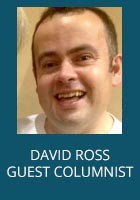 My mother and I had certain physical characteristics that we just accepted. We both had big heads, suffered from epilepsy, and my mother had episodes of strained breathing that was not looked into until later in her life.
My mother and I had certain physical characteristics that we just accepted. We both had big heads, suffered from epilepsy, and my mother had episodes of strained breathing that was not looked into until later in her life.
In 1991, my adoptive father left our home. When he did, I lost my younger self and the hopes and dreams that most young people have. I became a recluse, except for the strong relationship that I had with my mother. We shared a lot of things and enjoyed visiting historical buildings and gardens, going to concerts, and visiting coffee shops. Eventually I got married and had a child.
In 2015, the last year of my mother’s life, she gave me a letter and told me I needed to give it to doctors should I want to be tested for the same rare disease that she had found she had.
The disease my mother was diagnosed with was called Cowden syndrome, which comes under the umbrella of PTEN hamartoma tumor syndrome, a spectrum of conditions that are characterized by multiple hamartomas, and increased risk of getting certain cancers, developmental disorders, and autism.
When she died, I started going to a bereavement support group to deal with her loss. I was the youngest person to attend the group, which was mainly older women who had lost their spouses. For the first few sessions, I looked out the window at the ocean wishing it would somehow take me away from this room and this place. I was not ready to accept things. I did not want to be in a room of people with whom I would never associate. However, as time went on, I began to feel differently about the support group.
I continued to go and began to realize how amazing it was that all these people from different backgrounds with different lives had come together for the same reason— the loss of someone special. I started to embrace this and over time I was getting more support from the regular attendees rather than the counsellors.
After getting past the initial stages of bereavement, I went to doctors to get tested for PTEN in 2017. I had the same condition as my mother.
Having a rare disease diagnosis changes your life and the seeds of my advocacy were sown by attending the bereavement group. Being diagnosed with a rare disease has made me become more focused as a father and husband. I remember one rare disease advocate said being diagnosed with a rare disease is character building, which I consider to be true.
Not long after I was diagnosed, I learned of an international clinical trial for the PTEN community. I applied to the trial and was accepted. For the first time in my life, I was going to North America. There I met with families from another country who shared the same rare disease that I had, an aspect to to build on from of this rare experience. It was like having a rare disease family.
I was moving forward with my bereavement and connecting with fellow rare disease people who understood my situation. They provided me with support, and I was happy to listen to them. Through these connections, I started to branch out of my own community and began to see similarities with other people with rare diseases.
One of the things I have found in common among men with rare diseases is the mental health issues they face. There are a lot of great female advocates, but I have not met many male advocates. I found this concerning because I knew quite a few men who were suffering with both mental and physical health problems. Through the help of a friend and fellow rare disease advocate, I have been able to connect to other men with rare diseases. We share similar health experiences and are starting to build a support group to give men with rare diseases a voice.
Men are expected to be rocks. They are viewed as providers and leaders and are taught that they cannot appear vulnerable. There is still a social stigma around the world with mental health and such problems are viewed in a negative light. Before my diagnosis, I had never had a voice and only now have I found one. I hope by speaking out, I will inspire other men with rare diseases to do the same and get the support they need.
I lost my mother before her time and miss sharing experiences with her. She did not get to see my daughter at 14. She is there for us in spirit, I suppose, but sometimes that is not enough. I had searched for my father with the help of my wife’s cousin, who has a passion for ancestry. She found out that he died of a heart attack at the age of 42.
My hopes for reuniting with him quickly ended and I mourned for a father figure that I never had. In time I came to terms with this and realized that I had to serve as my own male role model. Setting up the male support group has been a way for me to be the kind of man that I felt was lacking in my life. I hope to provide support to other men with rare diseases going through similar experiences.

Stay Connected
Sign up for updates straight to your inbox.
